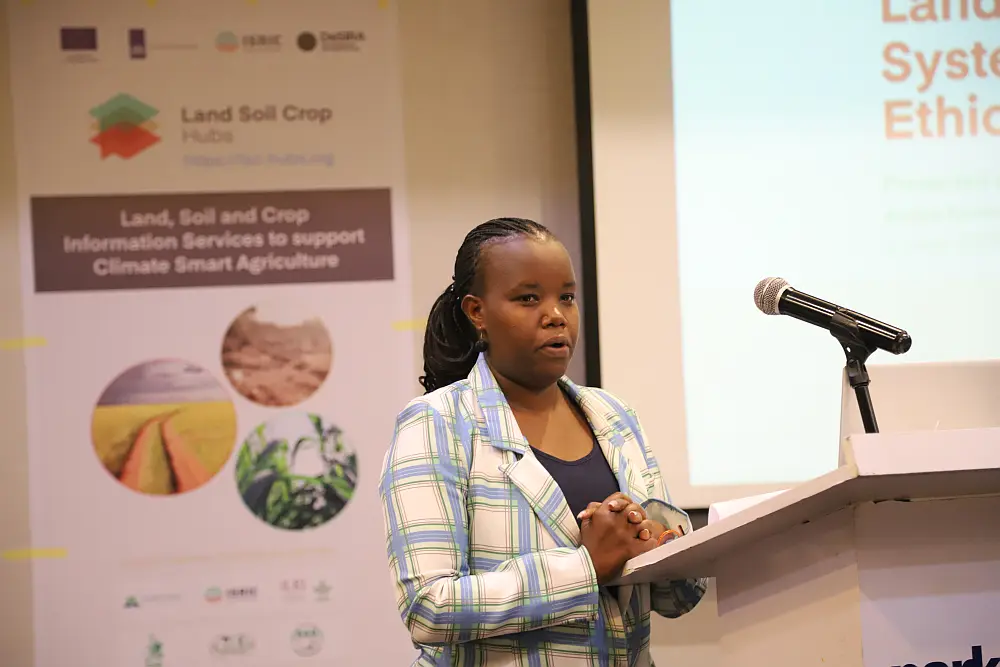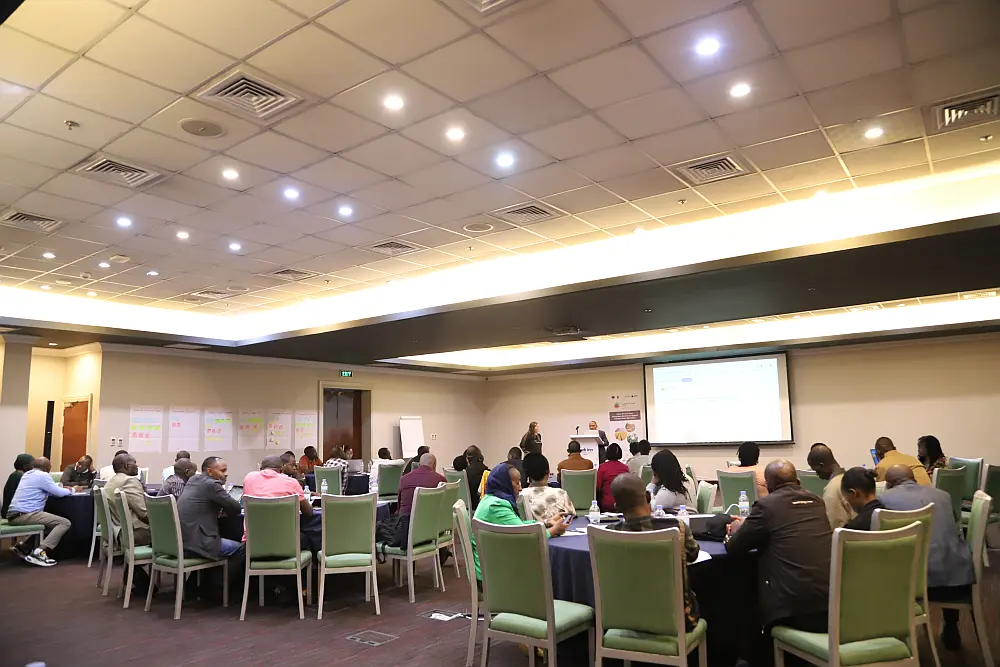Workshop on Advancing Climate-Smart Agriculture through Rwanda's LSC-Hub
Date: June 13, 2025 Author: John Recha (ILRI), Genevieve Apio (ASARECA)
During the five-day workshop, stakeholders reviewed progress and co-developed a roadmap for integrating the LSC-Hub into Rwanda’s national agricultural system.
With a population of just over 13.4 million living within 26,300 square kilometres—making it one of Africa’s most densely populated countries—Rwanda faces increasing pressure on its land and natural resources. As more than 70% of the population depends on agriculture for their livelihoods and food demand continues to grow, the adoption of climate-smart agriculture (CSA) has become essential. Supporting this effort is the Land, Soil and Crop Information Services (LSC-IS) project.
As part of the project’s ongoing activities, a national workshop was held in Kigali from 2–6 June 2025, following the annual planning meeting in November 2024. The workshop brought together 71 participants, including 26 national-level officials, 40 district-level actors, and five information technology specialists. The event was officially opened by Dr. Florence Uwamahoro, Deputy Director General of the Rwanda Agriculture and Animal Resources Development Board (RAB).

Dr. Florence Uwamahoro, RAB Deputy Director General.
The workshop aimed to evaluate the progress of the Rwanda LSC-Hub, collect user feedback, and define a clear pathway for its integration into Rwanda’s Agricultural Management Information System (AMIS). It also addressed how to institutionalise, scale, and sustain the hub as part of Rwanda’s broader agro-information ecosystem.
Toward a unified agro-information platform
A key highlight of the event was Rwanda’s commitment to advancing system integration and harmonisation. It was proposed to merge three existing systems—RwaSIS, LSC-IS, and the Soil Nutrient Status (SNS) platform—into a single, unified national system under AMIS. A new name will be assigned to reflect the integrated system. This harmonisation will reduce duplication of efforts and ensure wider accessibility of soil and crop data across sectors.
Institutional leadership and coordination
RAB, in collaboration with the Ministry of Agriculture (MINAGRI) and the Rwanda Space Agency (RSA), will spearhead the institutional coordination and ensure that the LSC-Hub is embedded into the national digital infrastructure. Global partner ISRIC – World Soil Information will continue to provide technical support, including key project documentation and soil data standards.

Workshop participants
Workshop highlights
Six key themes guided the workshop discussions:
- Improvements on the current Rwanda-LSC-Hub: Stakeholders interacted with the hub and provided feedback on general user experience, customisation and additional features, functionality and performance, security and access control, Information access and retrieval, user documentation, and map viewer features.
- Institutionalisation pathways: Stakeholders began drafting a national roadmap outlining long-term governance, hosting responsibilities, and budget planning to ensure the LSC-Hub becomes a permanent fixture in Rwanda’s agriculture system.
- Scaling strategies: Recommendations were made to expand the hub through existing extension systems, regional government platforms, farmer organisations, and private sector partnerships.
- Enhancing accessibility and use: Participants identified the need for localised interfaces, data visualisation tools, training resources, and open-access policies to boost adoption among diverse users, from policymakers to farmers.
- Ecosystem embedding: Integration with other national agro-data platforms and formal data-sharing agreements was discussed to strengthen system interoperability and institutional partnerships.
- Sustainability measures: Concrete actions were proposed for technical (software maintenance), financial (budget and PPPs), institutional (training), and legal (policy integration) sustainability.
Fast-tracking LSC-Hub technical development
A dedicated session with IT experts outlined an 11-step roadmap to finalise the system by 30 November 2025.

Workshop participants
Key actions include:
- RAB’s formal request to RSA for platform co-development and hosting.
- A comprehensive review of project documentation and identification of missing datasets.
- Drafting and validating updated Terms of Reference (ToRs) and Software Requirements Specification (SRS).
- Stakeholder validation and user testing.
- Final deployment, including Kinyarwanda translation, user manuals, and training.
- Weekly coordination meetings and a planned system validation workshop will ensure progress remains on track.
Looking ahead
The Kigali workshop marked a turning point in Rwanda’ s journey toward data-informed, climate-resilient agriculture. By embedding the LSC-Hub into national systems and aligning institutional efforts, Rwanda is setting an example for how data integration, ownership, and cross-sector collaboration can transform agriculture for the better.
For more about the DeSIRA LSC-Hubs initiative, visit https://lsc-hubs.org
Share